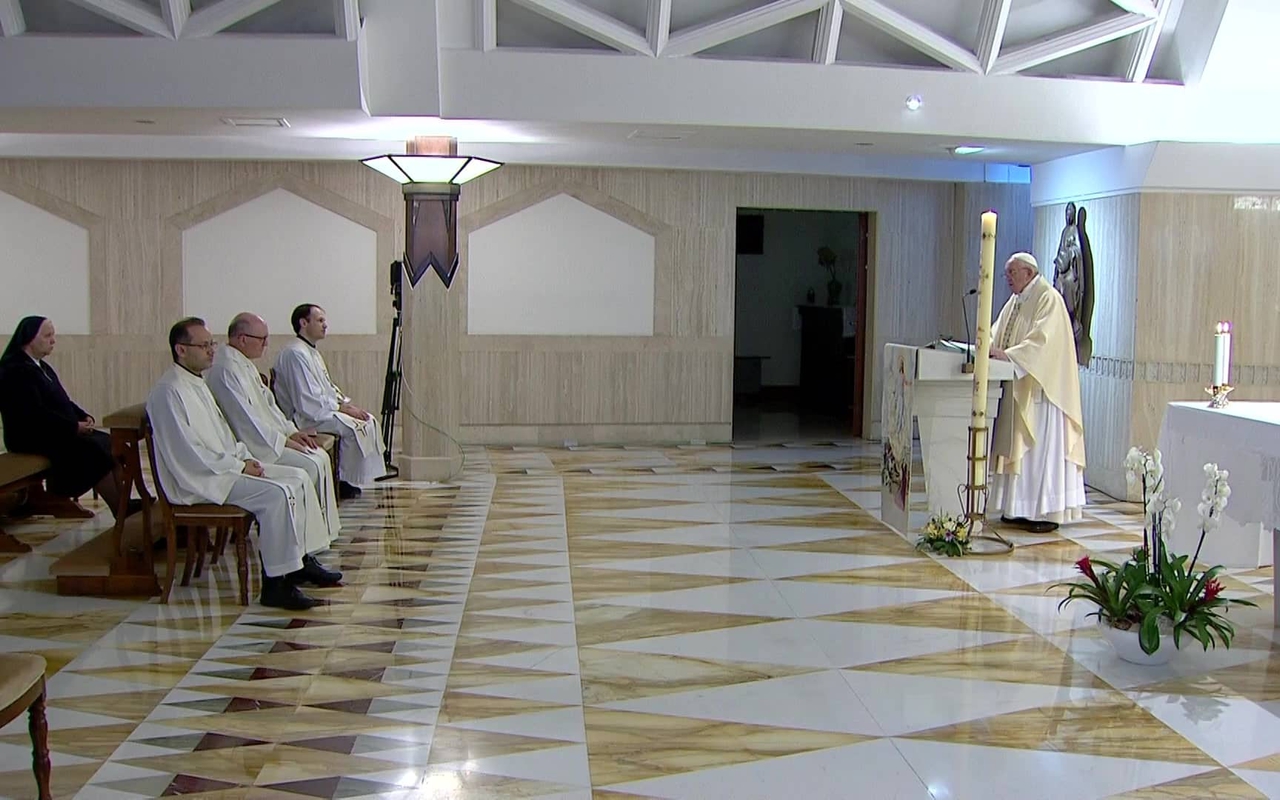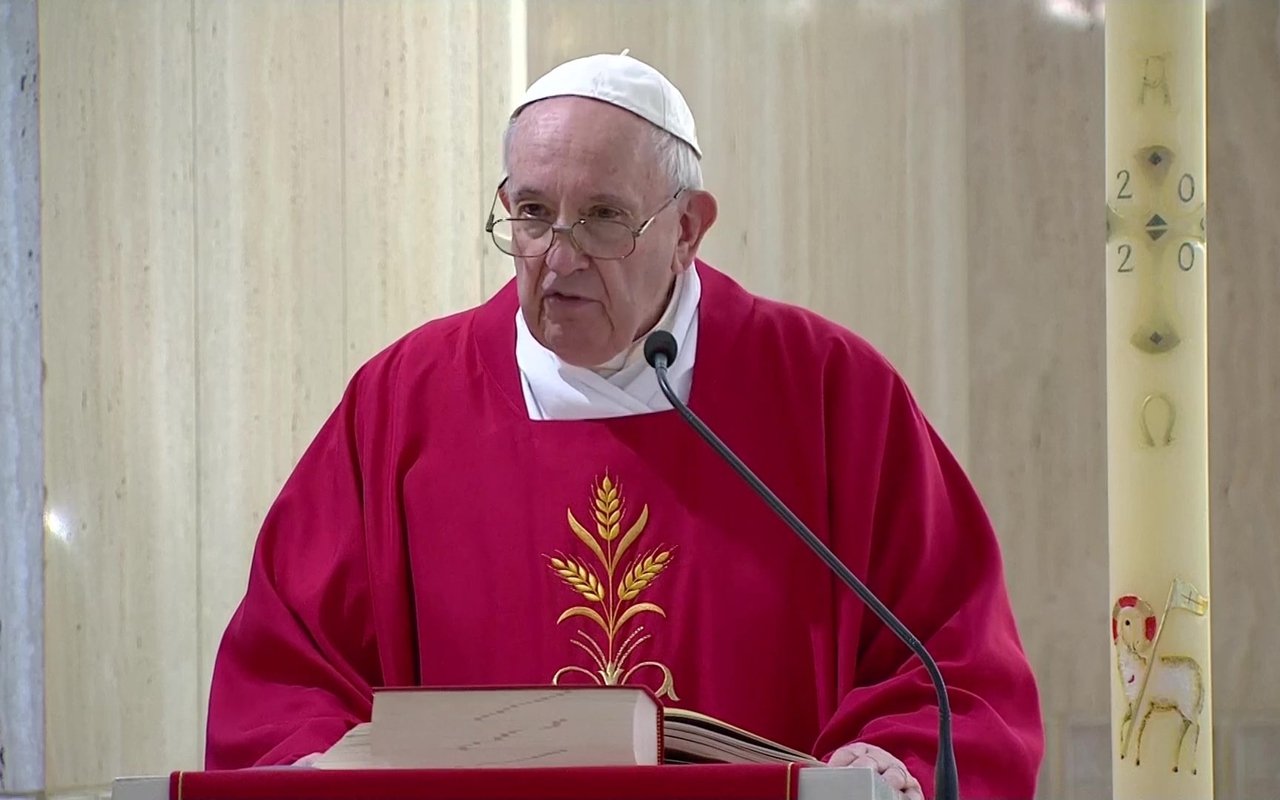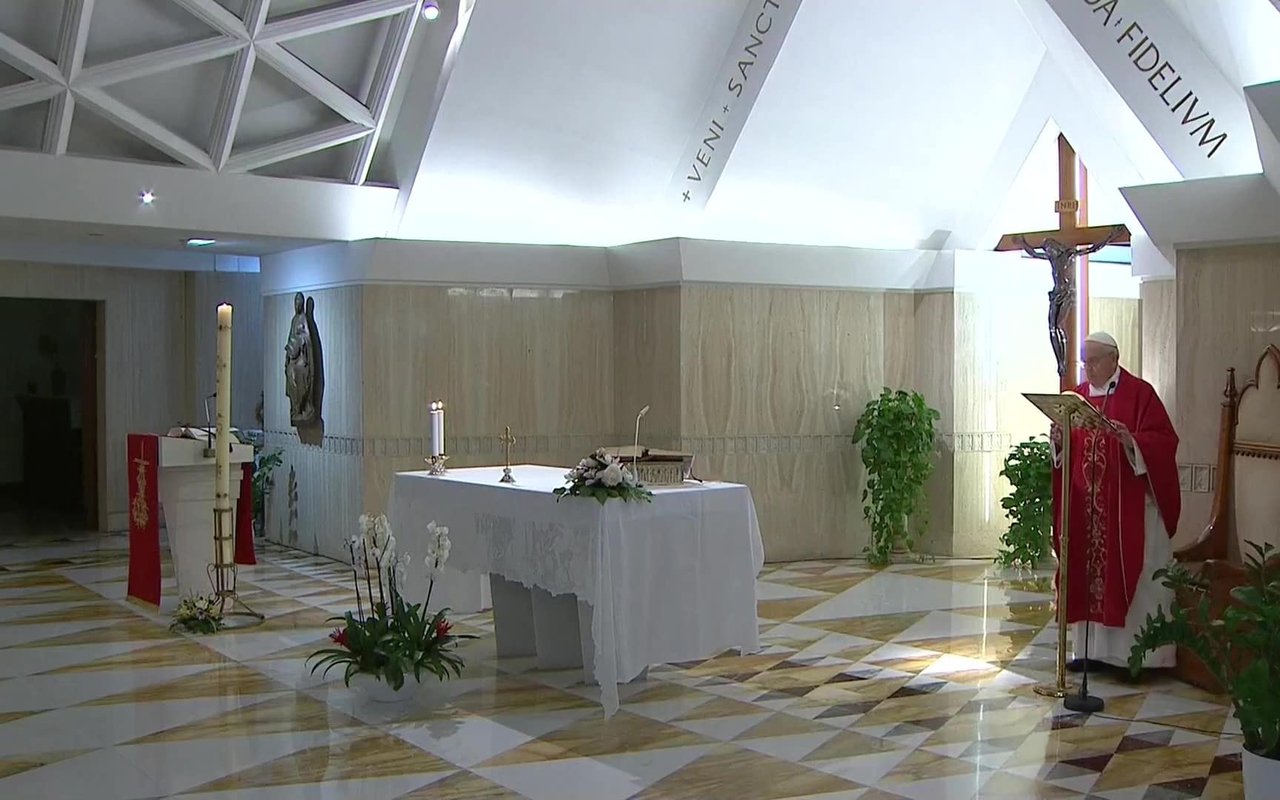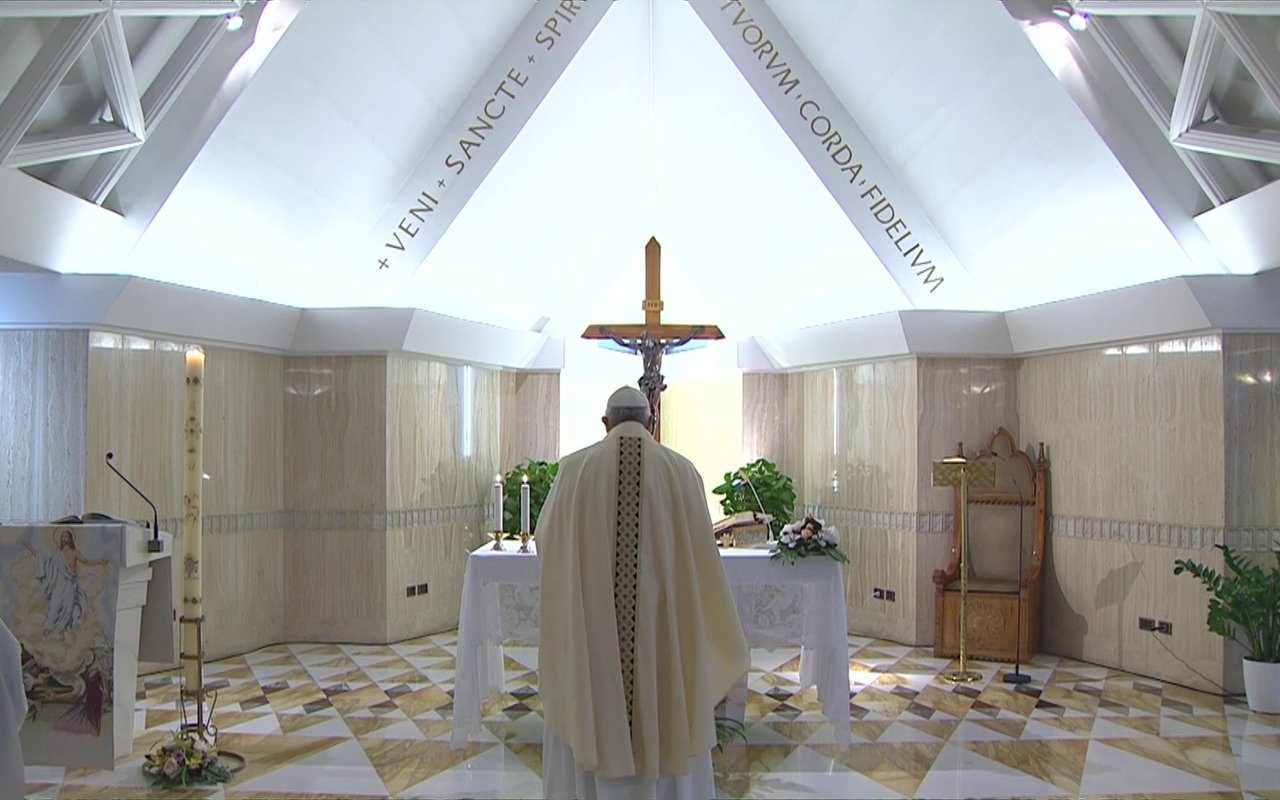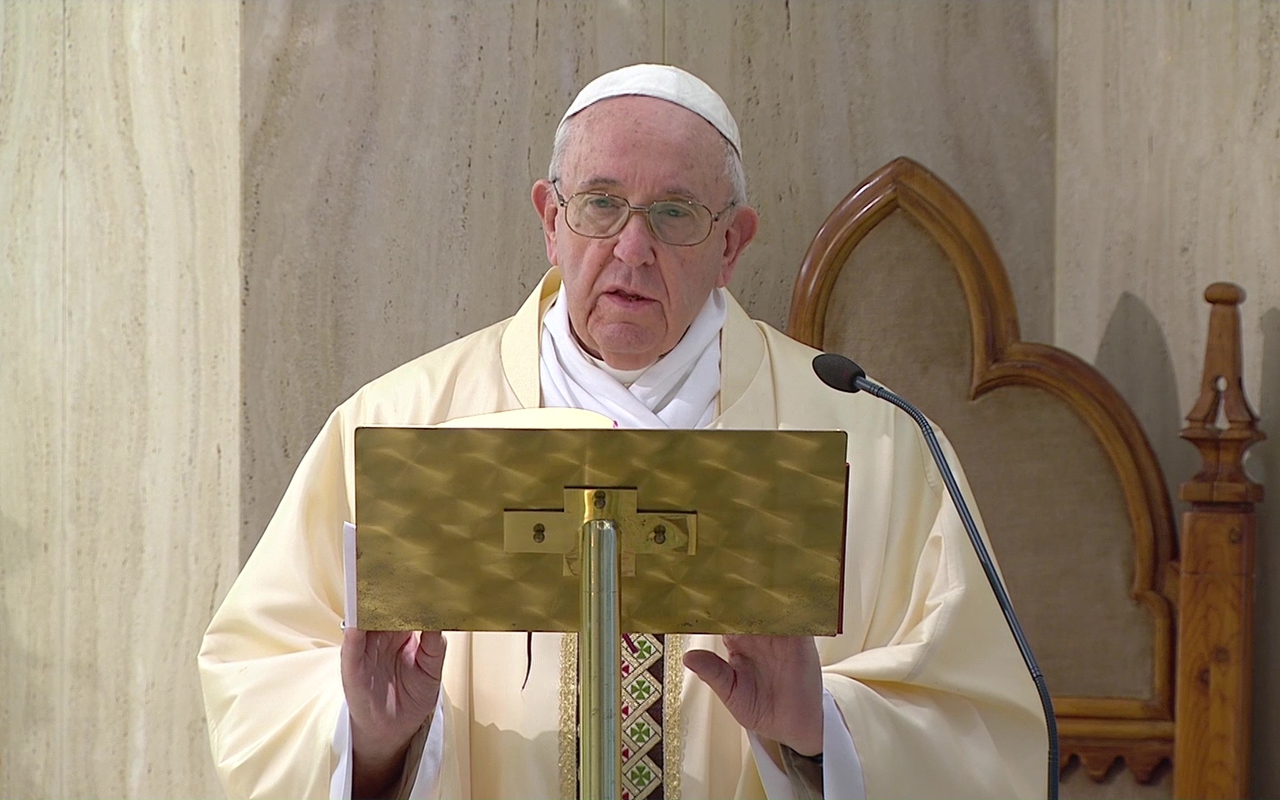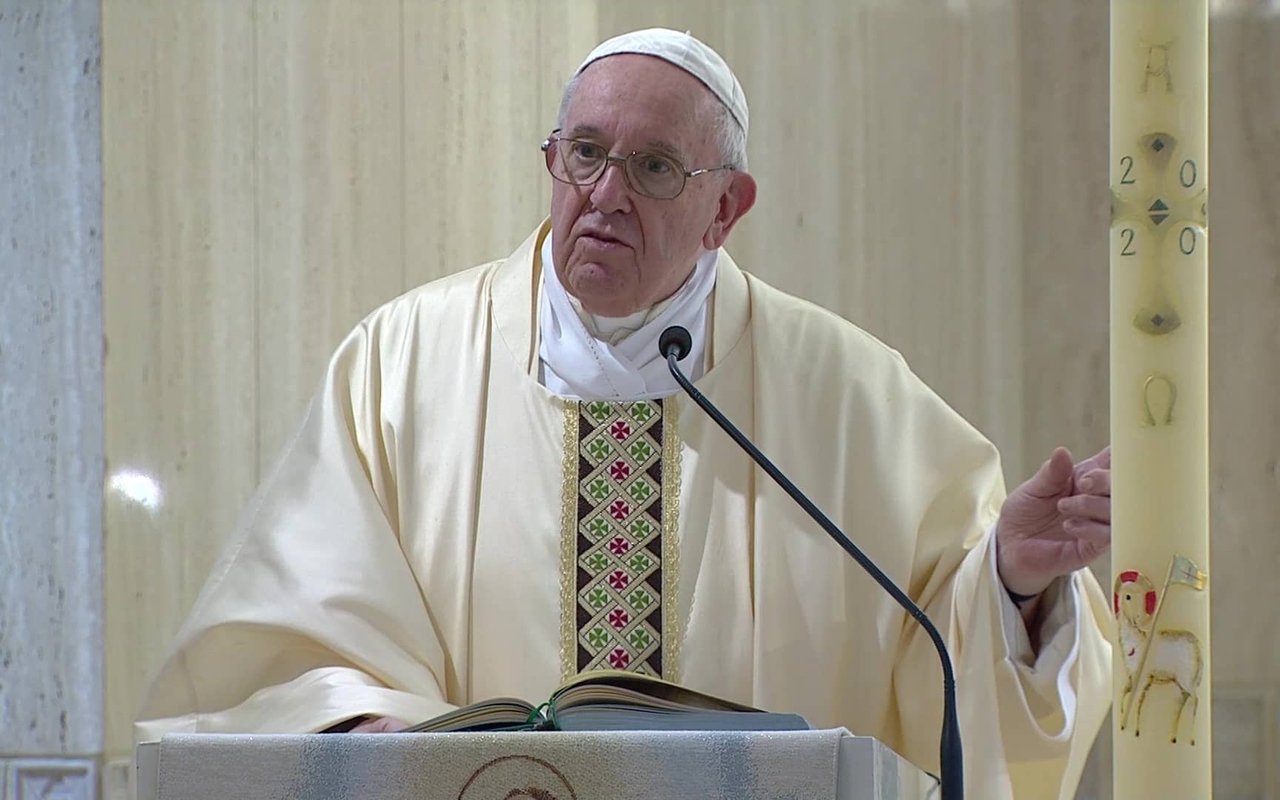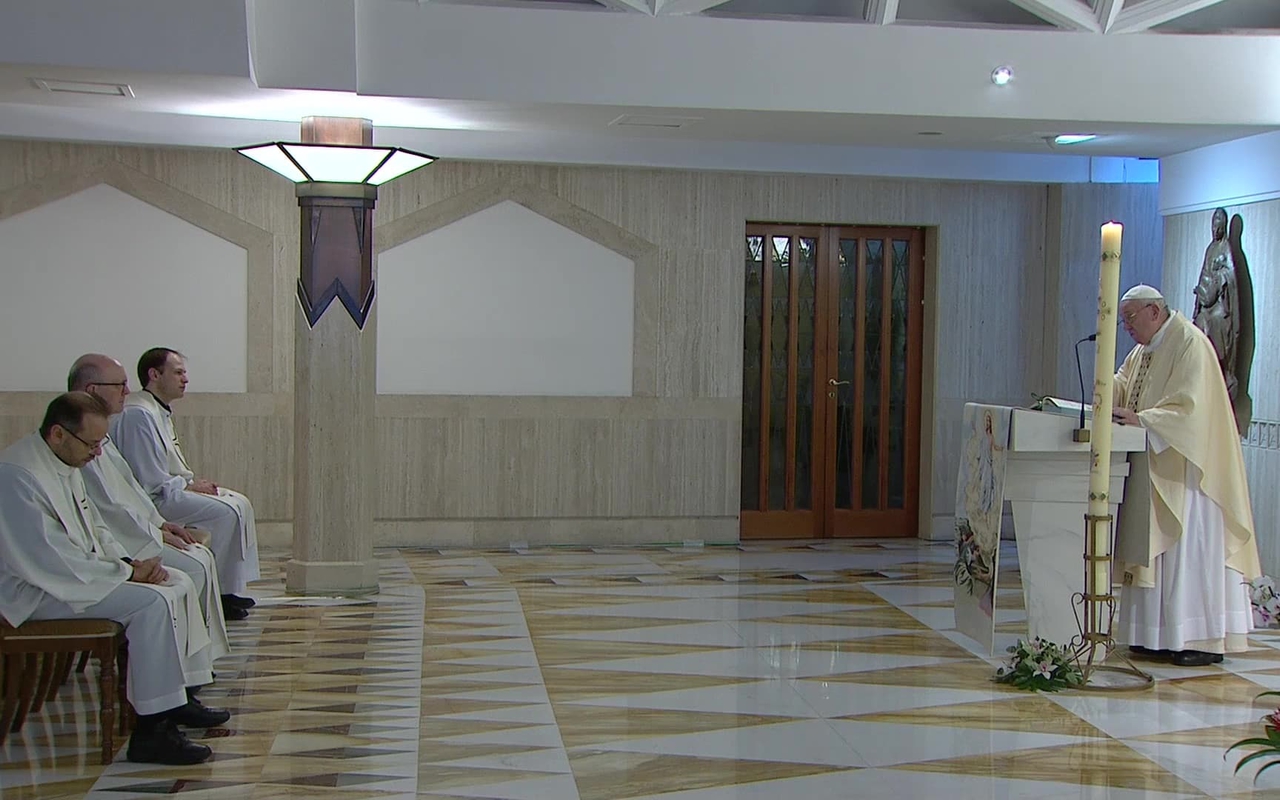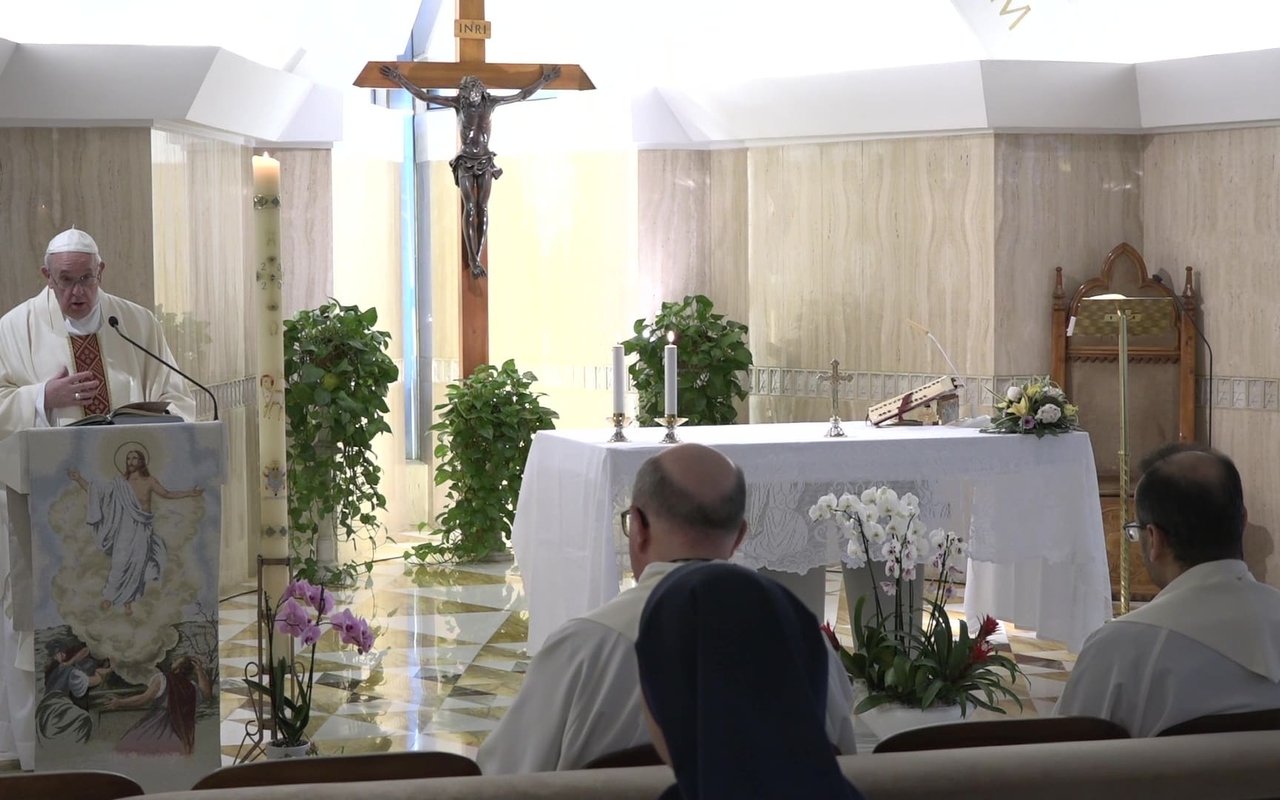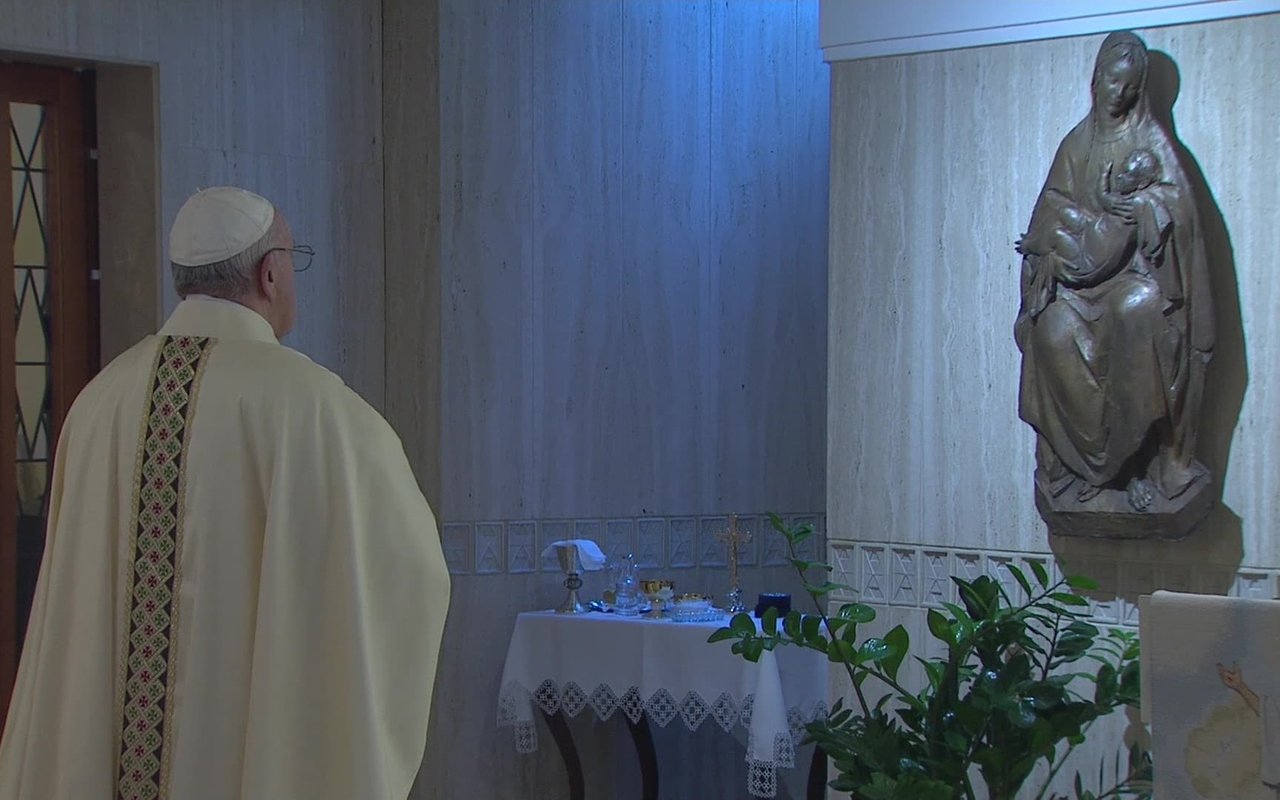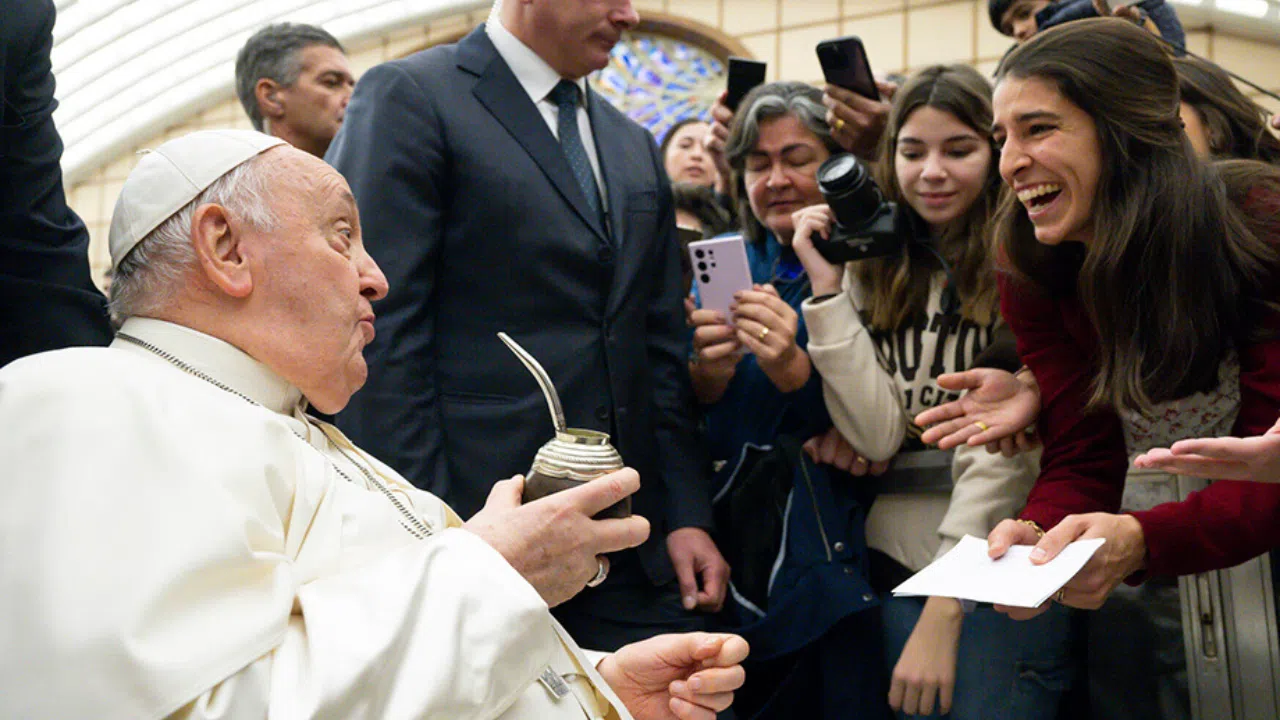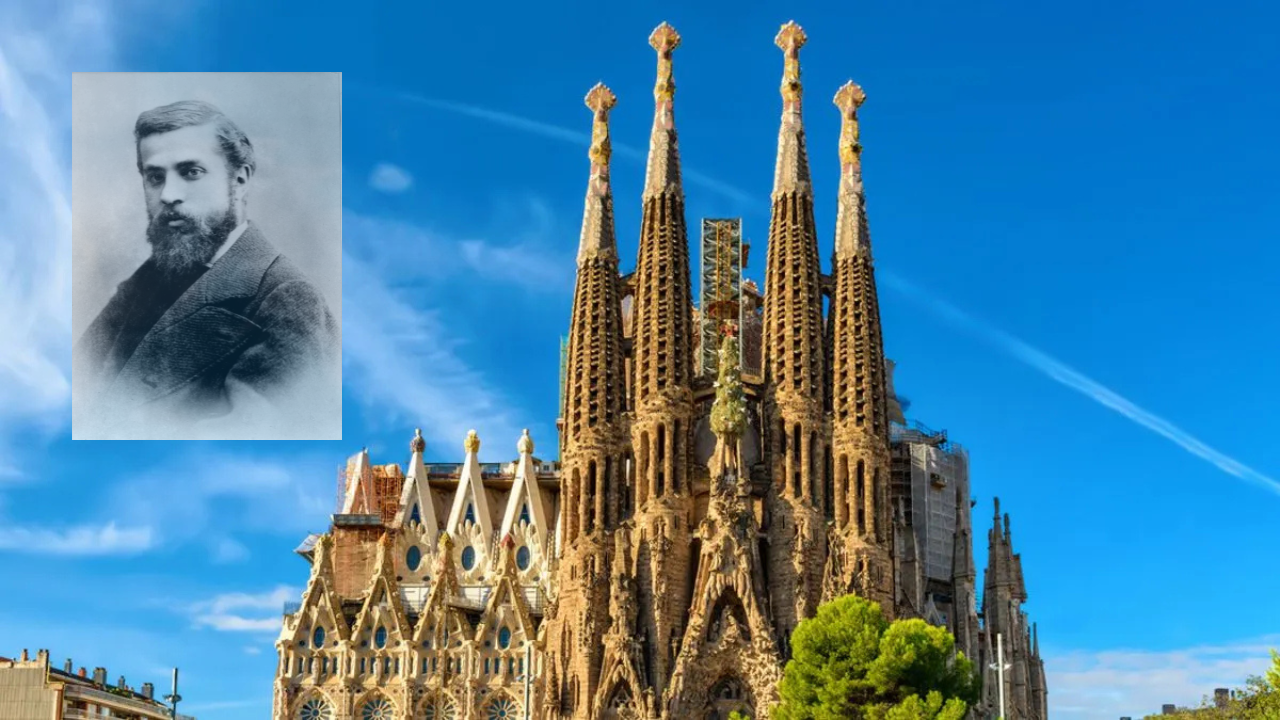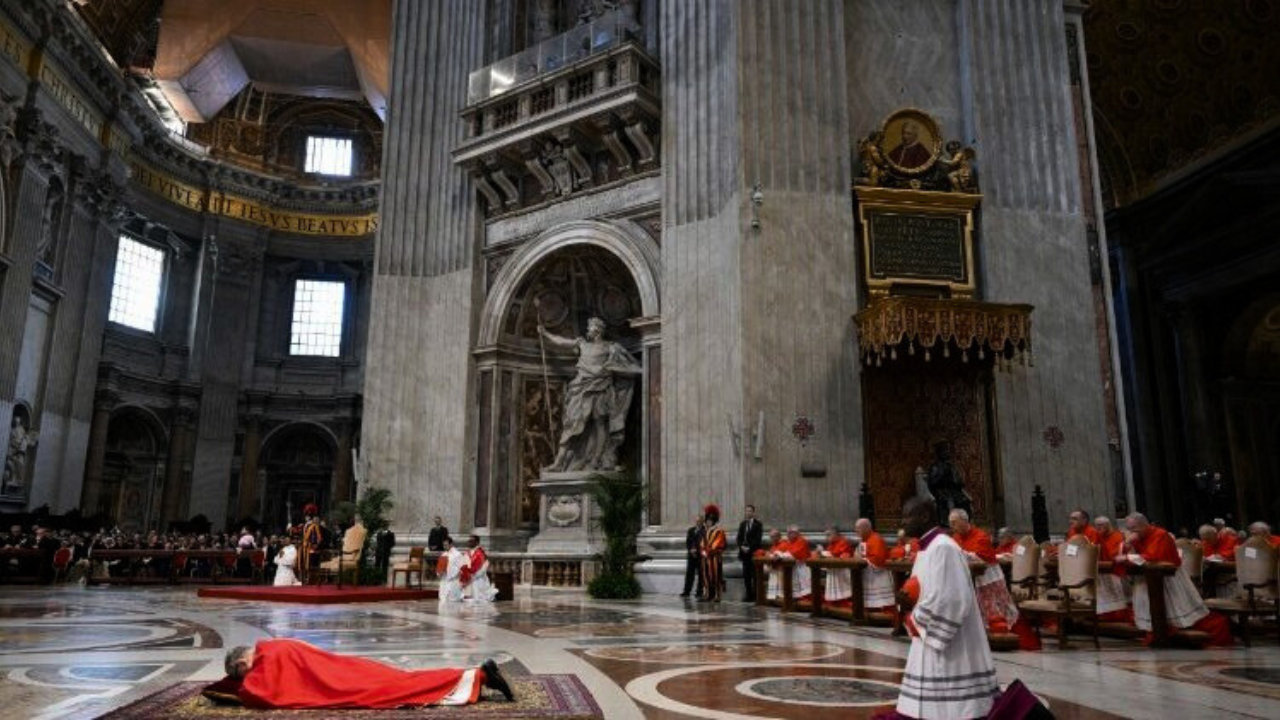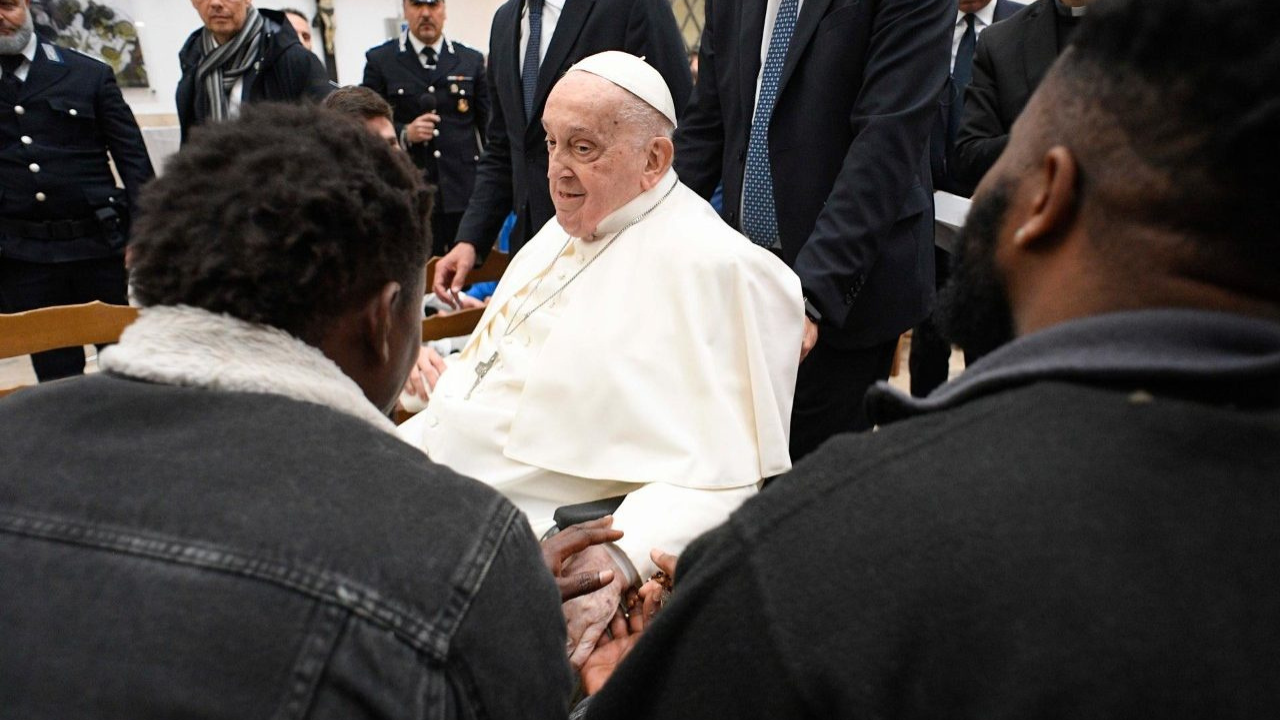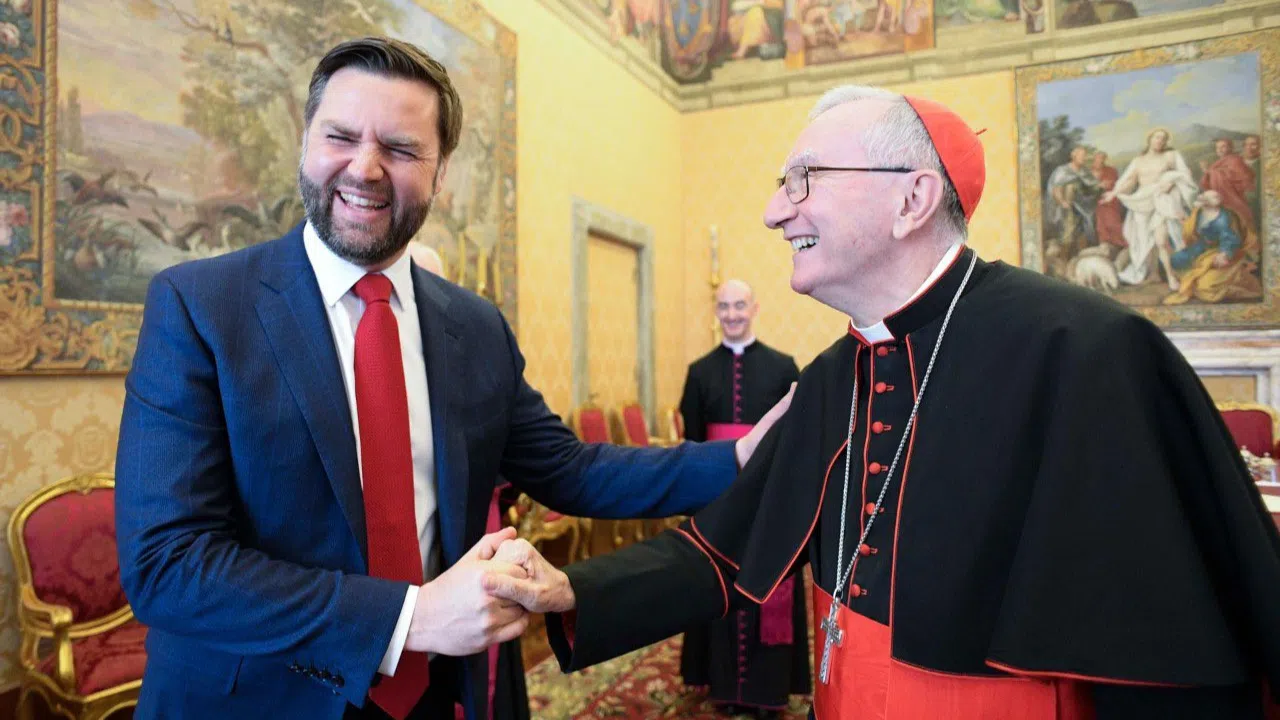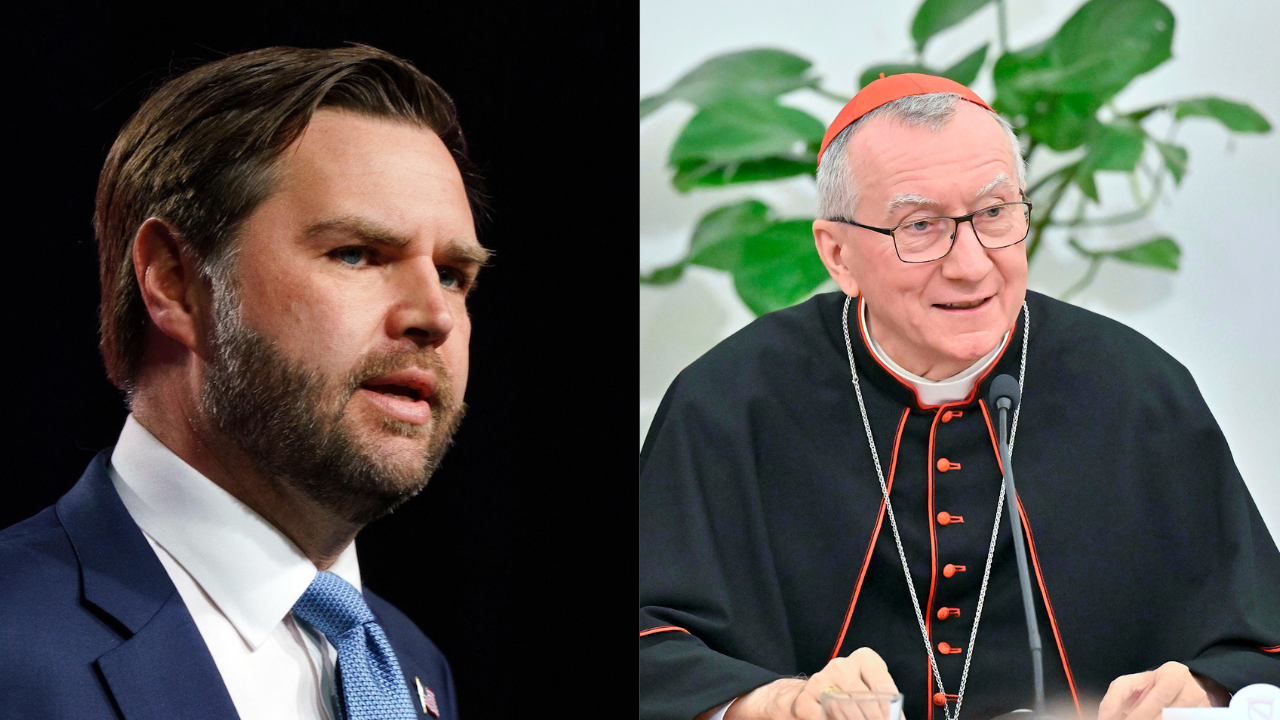In his homily at Casa Santa Marta on the first Memorial of the Blessed Virgin Mary, Mother of the Church, Pope Francis said God chose to be born of a woman in order to teach the Church the path of a woman. Thus, the Holy Father explained, the Church must remain feminine.
POPE FRANCIS
“The important thing is that the Church be a woman, that has this attitude of a bride and of a mother. When we forget this, it is a masculine Church. Without this dimension, it sadly becomes a church of old bachelors, who live in this isolation, incapable of love, incapable of fecundity. Without the woman, the Church does not advance—because she is a woman.”
The pope called tenderness the main virtue that distinguishes a woman, and said the Church must learn from mothers' examples of meekness and humility.
EXCERPTS FROM THE POPE'S HOMILY
(Source: Vatican Media)
“The Church is feminine, because it is 'church' and 'bride' [both grammatically feminine]: it is feminine. And she is mother; she gives life. Bride and Mother. And the Fathers go further and say that even your soul is the bride of Christ and mother.” And it is with this attitude that comes from Mary, who is Mother of the Church, with this attitude we can understand this feminine dimension of the Church, which, when it is not there, the Church loses its identity and becomes a charitable organization or a football team, or whatever, but not the Church.”
“The important thing is that the Church be a woman, that has this attitude of a bride and of a mother. When we forget this, it is a masculine Church. Without this dimension, it sadly becomes a church of old bachelors, who live in this isolation, incapable of love, incapable of fecundity. Without the woman, the Church does not advance—because she is a woman.”
“A Church that is a mother goes along the path of tenderness. It knows the language of such wisdom of caresses, of silence, of the gaze that knows compassion, that knows silent. It is, too, a soul, a person who lives out this way of being a member of the Church, knowing that he or she is [like] a mother [and] must go along the same path: a person [who is] gentle, tender, smiling, full of love.”


